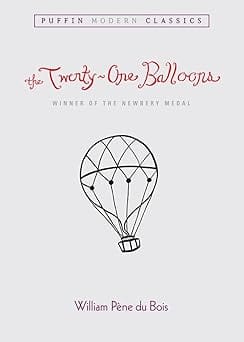WELCOME TO MIDLAND BOOK SHOP!
SHOP FOR
- Contemporary Fiction
- Contemporary Fiction
- Children
- Children
- Comics & Graphic Novels
- Comics & Graphic Novels
- Non-Fiction
- Non-Fiction
- Fiction
- Fiction
Shop No.20, Aurobindo Palace Market, Hauz Khas, Near Church +91 9818282497 | 011 26867121 110016 New Delhi IN
Midland The Book Shop ™
Shop No.20, Aurobindo Palace Market, Hauz Khas, Near Church +91 9818282497 | 011 26867121 New Delhi, IN
+919871604786 https://www.midlandbookshop.com/s/607fe93d7eafcac1f2c73ea4/677cda367903fd013d69b606/without-tag-line-480x480.png" [email protected]9789362148698 67ed3226279c2aacc3d698f9 The Trial https://www.midlandbookshop.com/s/607fe93d7eafcac1f2c73ea4/67ed3227279c2aacc3d69901/71me38qf4rl-_sy385_.jpg 9789362148698
The Trial by Franz Kafka is a haunting exploration of bureaucracy, isolation, and the absurdity of modern life. This iconic novel follows Josef K., an ordinary man who is suddenly arrested and thrust into a nightmarish, surreal legal system with no explanation or understanding of the charges against him. As he navigates a maze of impersonal courts and enigmatic figures, The Trial raises deep questions about justice, power, and personal agency. In Kafka's surreal style, the book explores guilt, helplessness, and the dehumanizing forces of authority, leaving readers questioning justice and individual freedom.
It is often safer to be in chains than to be free.”
It is often safer to be in chains than to be free.”
- Explore timeless themes of guilt and helplessness in a system that strips away personal agency.
- Delve into a psychological drama that forces readers to question the nature of authority and freedom.
- Explore Kafka’s influential style, blending dark humor and philosophical inquiry into the human condition.
- Immerse into Kafka’s masterpiece, confronting the darkest aspects of human existence. Delve into Kafka’s surreal storytelling and experience a world where reality and absurdity blur.
About the Author
Franz Kafka (1883–1924) was a German-speaking Bohemian writer renowned for his unique and unsettling narrative style. His works often grapple with themes of existential dread, isolation, and the complexities of modern life. In addition to The Trial, Kafka's notable works include The Metamorphosis and The Castle, which depict surreal and nightmarish scenarios that reflect the anxieties of the human experience. Despite his relatively short life and limited recognition during his lifetime, Kafka’s profound insights and innovative storytelling have established him as a pivotal figure in 20th-century literature.
in stockINR 159
1 1
Email ID already exists!
Your Current password is incorrect
Password Updated Successfully
Thanks for your Feedback
- Home
- Fiction
- Classic Text
- The Trial
The Trial
ISBN: 9789362148698
₹159
₹199 (20% OFF)SIZE GUIDE
Sold By: Hauz Khas - Aurobindo Market
Details
- ISBN: 9789362148698
- Author: Franz Kafka
- Publisher: Finger Print Classic
- Pages: 228
- Format: Paperback
Book Description
The Trial by Franz Kafka is a haunting exploration of bureaucracy, isolation, and the absurdity of modern life. This iconic novel follows Josef K., an ordinary man who is suddenly arrested and thrust into a nightmarish, surreal legal system with no explanation or understanding of the charges against him. As he navigates a maze of impersonal courts and enigmatic figures, The Trial raises deep questions about justice, power, and personal agency. In Kafka's surreal style, the book explores guilt, helplessness, and the dehumanizing forces of authority, leaving readers questioning justice and individual freedom.
It is often safer to be in chains than to be free.”
It is often safer to be in chains than to be free.”
- Explore timeless themes of guilt and helplessness in a system that strips away personal agency.
- Delve into a psychological drama that forces readers to question the nature of authority and freedom.
- Explore Kafka’s influential style, blending dark humor and philosophical inquiry into the human condition.
- Immerse into Kafka’s masterpiece, confronting the darkest aspects of human existence. Delve into Kafka’s surreal storytelling and experience a world where reality and absurdity blur.
About the Author
Franz Kafka (1883–1924) was a German-speaking Bohemian writer renowned for his unique and unsettling narrative style. His works often grapple with themes of existential dread, isolation, and the complexities of modern life. In addition to The Trial, Kafka's notable works include The Metamorphosis and The Castle, which depict surreal and nightmarish scenarios that reflect the anxieties of the human experience. Despite his relatively short life and limited recognition during his lifetime, Kafka’s profound insights and innovative storytelling have established him as a pivotal figure in 20th-century literature.
User reviews
NEWSLETTER
Subscribe to get Email Updates!
Thanks for subscribing.
Your response has been recorded.

India's Iconic & Independent Book Store offering a vast selection of books across a variety of genres Since 1978.
"We Believe In The Power of Books" Our mission is to make books accessible to everyone, and to cultivate a culture of reading and learning. We strive to provide a wide range of books, from classic literature, sci-fi and fantasy, to graphic novels, biographies and self-help books, so that everyone can find something to read.
Whether you’re looking for your next great read, a gift for someone special, or just browsing, Midland is here to make your book-buying experience easy and enjoyable.
We are shipping pan India and across the world.
For Bulk Order / Corporate Gifting
 +91 9818282497 |
+91 9818282497 |  [email protected]
[email protected]
Click To Know More
INFORMATION
QUICK LINKS
ADDRESS
Midland Book Shop - Hauz Khas
Shop No.20, Aurobindo Palace Market, Near Church, New Delhi
Shop No.20, Aurobindo Palace Market, Near Church, New Delhi













